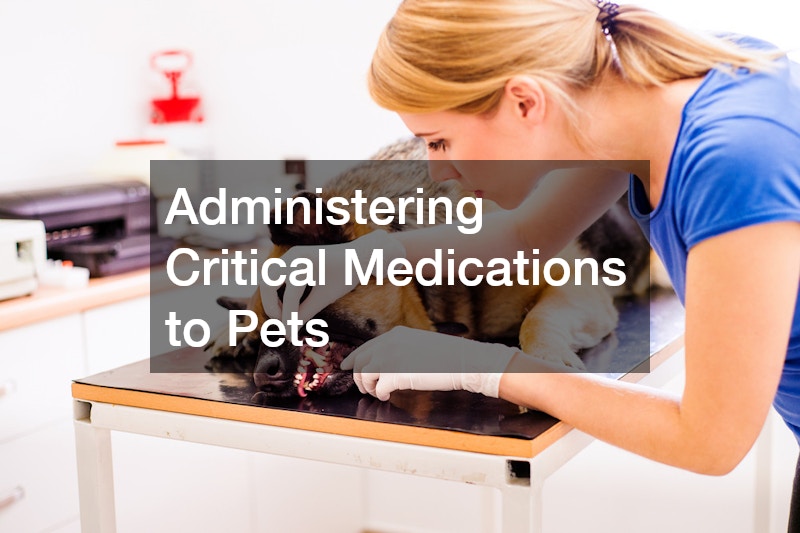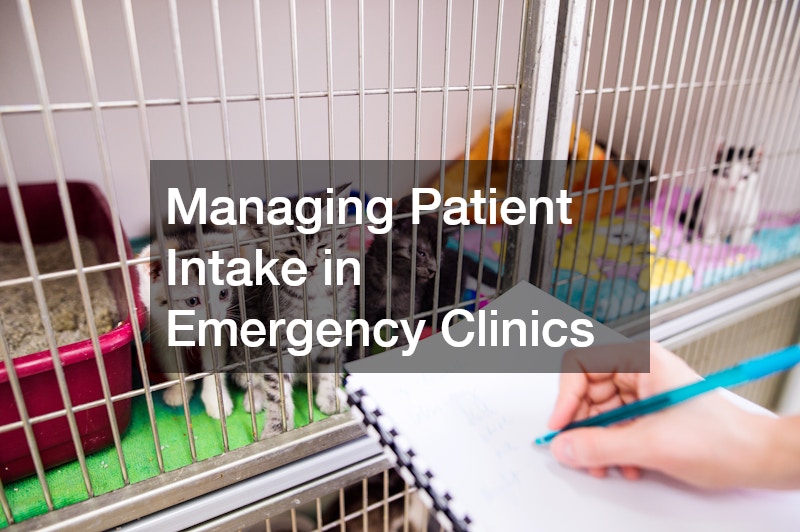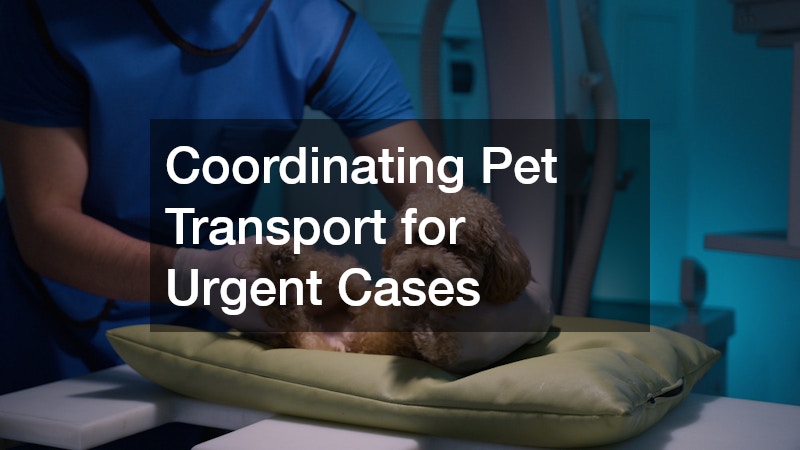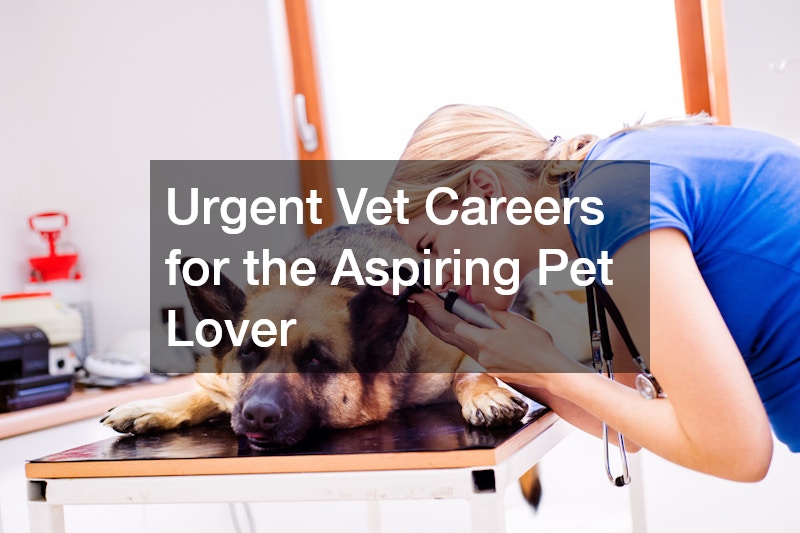Pursuing a career in veterinary medicine can be both deeply rewarding and challenging, especially when the focus is on urgent care for animals. For pet lovers who thrive in fast-paced, high-stakes environments, urgent vet careers offer a unique opportunity to make a real difference in the lives of pets and their owners. These careers demand a blend of compassion, technical skill, and quick decision-making, often under pressure. Whether responding to critical injuries or sudden illnesses, professionals in this field play a crucial role in delivering timely and effective care. Understanding the nature of vet careers and the various roles available can help aspiring individuals prepare for a fulfilling path dedicated to animal health and welfare.
Urgent vet careers are diverse, encompassing roles that require not only medical knowledge but also the ability to manage emergencies calmly and efficiently. Those interested in this field must be ready to work irregular hours, adapt to rapidly changing situations, and communicate clearly with pet owners during stressful moments. Developing expertise in these areas not only enhances job performance but also helps in building trust within the veterinary community. As this blog explores key aspects of vet careers, readers will gain insight into the skills and environments where they can best apply their passion for animal care.
Providing Emergency Animal Care

Emergency animal care is the frontline of urgent vet careers, focusing on the immediate treatment of pets facing life-threatening conditions. Professionals providing this care must quickly assess symptoms, stabilize animals, and determine the best course of action to preserve health and save lives. This area often involves working in fast-paced settings where every second counts, requiring practitioners to combine medical expertise with empathy and clear communication. Providing emergency animal care is a critical component of veterinary services that supports both pets and their worried owners during moments of crisis.
In the context of an emergency vet facility, providing emergency animal care means managing a wide range of urgent situations, from trauma and poisoning to severe infections and acute illnesses. Staff in these settings utilize advanced diagnostic tools and treatments to stabilize patients, often working collaboratively with veterinarians and specialists. The environment is intense, demanding quick thinking and hands-on skills to administer fluids, medications, and emergency surgeries when needed. Those pursuing vet careers focused on emergency animal care will find themselves at the heart of veterinary medicine’s most dynamic and impactful challenges.
Supporting Veterinary Surgical Procedures
Supporting veterinary surgical procedures is another vital area within urgent vet careers, offering a specialized avenue for those who enjoy technical work and teamwork in high-pressure environments. This role involves preparing surgical instruments, assisting veterinarians during operations, and ensuring that the sterile environment is maintained to prevent infections. Professionals supporting surgeries must have a thorough understanding of anatomy, surgical protocols, and patient monitoring to contribute effectively to successful outcomes. This aspect of vet careers highlights the importance of precision and collaboration in saving animal lives.
Within the realm of a pet surgeon’s practice, supporting veterinary surgical procedures means being deeply involved in complex cases such as emergency trauma repairs, tumor removals, or orthopedic surgeries. Technicians and assistants working alongside pet surgeons help manage anesthesia, monitor vital signs, and respond swiftly to any complications during procedures. This role demands a high level of focus, technical knowledge, and the ability to anticipate the needs of the surgical team. For those interested in urgent vet careers, working in surgical support offers a hands-on opportunity to impact animal recovery directly.
Administering Critical Medications to Pets

Administering critical medications to pets is a fundamental responsibility in many vet careers, ensuring that animals receive timely and appropriate treatments to stabilize their conditions. This task requires a deep understanding of pharmacology, dosage calculations, and potential side effects, alongside a compassionate approach to handling stressed or injured animals. Working in this area involves collaborating closely with veterinarians and other medical staff to deliver medications accurately and monitor patient responses, which is essential for effective recovery.
Administering critical medications in veterinary clinics often involves urgent situations where pets require intravenous fluids, pain management, antibiotics, or emergency drugs to counteract life-threatening conditions. Professionals must be adept at recognizing changes in patient status and adjusting treatments accordingly. This responsibility demands precision and vigilance, as errors can have serious consequences. Those pursuing urgent vet careers will find this area to be both challenging and rewarding, as they play a direct role in improving animal health during critical moments.
Assisting in Diagnostic Imaging for Animals
Assisting in diagnostic imaging is an important aspect of vet careers that helps veterinarians quickly identify the cause of an animal’s distress. Techniques such as X-rays, ultrasounds, and CT scans provide valuable insights into internal injuries, fractures, or illnesses that may not be visible externally. Professionals supporting imaging procedures must be skilled in operating specialized equipment and positioning animals safely while minimizing stress. This role is crucial for timely diagnosis and treatment planning in emergency settings.
At a local animal hospital, assisting in diagnostic imaging means collaborating with veterinary teams to capture clear, precise images that guide urgent medical decisions. Whether imaging a pet after a traumatic accident or investigating sudden respiratory issues, accurate diagnostics are critical for effective care. Technicians involved in this process often handle sedation protocols, ensure the safety of both patient and staff, and maintain equipment. For those interested in vet careers, mastering diagnostic imaging skills enhances their ability to contribute to swift and accurate animal care.
Managing Patient Intake in Emergency Clinics

Managing patient intake in emergency clinics is a vital function within vet careers that sets the stage for effective treatment by gathering essential information and prioritizing care. This role often serves as the first point of contact for distressed pet owners and their animals, requiring excellent communication skills and the ability to assess urgency quickly. Staff must collect detailed medical histories, note symptoms, and streamline the admission process to ensure that animals receive prompt attention based on their condition.
In an emergency health clinic setting, managing patient intake involves triaging cases to identify the most critical patients, coordinating with veterinary staff, and maintaining organized records under pressure. Professionals must remain calm and empathetic while dealing with anxious clients, often making split-second decisions that impact the flow of care. For those exploring vet careers, excelling in patient intake management means balancing administrative duties with compassionate support, making it a rewarding and essential role in emergency veterinary medicine.
Monitoring Recovery in Hospitalized Pets
Monitoring recovery in hospitalized pets is a crucial part of urgent vet careers, involving continuous observation to ensure animals heal properly after emergency treatments. This role demands attention to detail, as changes in vital signs, behavior, or appetite can indicate improvement or complications. Professionals must document patient progress, administer ongoing care, and communicate findings to veterinarians to adjust treatment plans as needed. Effective monitoring supports better outcomes and helps prevent setbacks during the critical post-emergency phase.
Within the scope of animal control facilities, monitoring recovery often extends beyond medical care to include behavioral assessments and managing stress in hospitalized animals. Staff may work with pets that have been rescued or are under quarantine, requiring a careful balance between medical treatment and humane handling. For those pursuing vet careers, this setting offers a unique perspective on recovery, emphasizing both physical healing and overall welfare in animals coming from challenging circumstances.
Coordinating Pet Transport for Urgent Cases

Coordinating pet transport for urgent cases is an often overlooked but essential aspect of vet careers, ensuring that animals receive prompt access to specialized care even when they cannot reach clinics on their own. This role involves organizing safe and efficient transportation, communicating with veterinary teams, and managing logistics under time-sensitive conditions. Proper coordination helps reduce stress for both pets and owners while speeding up the delivery of critical medical services.
In the context of mobile dog grooming and related pet services, coordinating transport may include arranging transfers to emergency facilities or bringing veterinary care directly to animals unable to travel. Professionals must be knowledgeable about animal handling, transport regulations, and emergency protocols to guarantee safe transit. Those interested in vet careers can find meaningful opportunities in this area by facilitating timely interventions and expanding access to urgent veterinary care.
Educating Pet Owners on Emergency Care
Educating pet owners on emergency care is a vital component of vet careers, empowering families to recognize warning signs and respond appropriately before professional help arrives. This role combines clear communication with empathy, helping owners understand potential emergencies and basic first aid measures that can stabilize pets in critical moments. Effective education not only improves immediate outcomes but also fosters trust and cooperation between veterinary professionals and clients.
Drawing parallels from dry eye doctors who emphasize patient education about managing chronic conditions, urgent vet professionals similarly guide pet owners through complex emergency scenarios. This includes explaining symptoms that warrant urgent vet visits, how to administer medications safely, and when to seek specialized care. Those pursuing urgent vet careers will find that strong educational skills enhance their impact by preparing owners to act decisively and confidently during pet health crises.
Maintaining Sterile Environments in Clinics
Maintaining sterile environments in clinics is a critical responsibility within vet careers that helps prevent infections and complications during emergency treatments. Ensuring that surgical rooms, equipment, and common areas remain clean and disinfected requires strict adherence to protocols and attention to detail. This role supports the overall safety and effectiveness of veterinary care, protecting both patients and staff from harmful contaminants.
Much like the meticulous hygiene standards upheld by opticians in their clinics, veterinary professionals must implement rigorous sterilization practices daily. This includes properly sterilizing surgical instruments, using disposable materials where appropriate, and educating team members about infection control. For those entering urgent vet careers, mastering these procedures is essential to maintaining high standards of care and reducing the risk of post-treatment infections in vulnerable animals.
Documenting Medical Records for Emergency Visits
Documenting medical records for emergency visits is an indispensable part of vet careers, ensuring accurate and comprehensive tracking of each animal’s treatment journey. Detailed records allow veterinary teams to monitor progress, communicate effectively, and make informed decisions about ongoing care. Proper documentation also supports legal compliance and facilitates smooth transitions between different care providers.
Similar to eye doctors who meticulously maintain patient histories to guide treatment, veterinary professionals must record symptoms, interventions, medication dosages, and outcomes with precision. In emergency settings, where situations evolve rapidly, clear and timely documentation is especially important to avoid errors and ensure continuity of care. Aspiring candidates will find that strong record-keeping skills are a cornerstone of professional veterinary practice.
Embracing Opportunities in Urgent Vet Careers
Urgent vet careers offer a dynamic and fulfilling path for those passionate about animal welfare and eager to respond swiftly to medical emergencies. Throughout this blog, the diverse roles—from providing emergency animal care to coordinating pet transport—highlight the varied skills and environments that define this field. Success in vet careers depends not only on medical knowledge but also on communication, empathy, and the ability to manage high-pressure situations with confidence.
As the demand for skilled veterinary professionals grows, so do opportunities to specialize in urgent care settings that challenge and inspire. Whether working in veterinary clinics, emergency health clinics, or mobile services, individuals dedicated to urgent vet careers play a vital role in safeguarding the health and lives of beloved pets. For aspiring pet lovers, this career path represents a unique blend of compassion, science, and action that truly makes a difference every day.
Choosing a career in urgent veterinary care means committing to continuous learning and adaptability, as the field constantly evolves with new medical advancements and technologies. Professionals in this area must stay updated on best practices and emerging treatments to provide the highest level of care during emergencies. Moreover, the emotional resilience required to handle stressful and sometimes heartbreaking situations makes vet careers both challenging and profoundly meaningful. For those who are passionate about making a tangible difference in the lives of animals, this career path offers a powerful way to combine dedication with impactful action.



